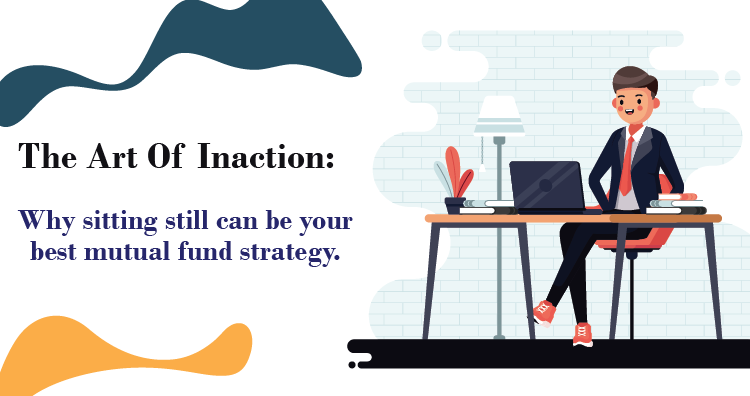Smart way to generate Passive income.


Smart way to generate Passive income.



The Art of Inaction: Why Sitting Still Can Be Your Best Mutual Fund Strategy
In the fast-paced world of mutual fund investing, we're constantly bombarded with advice to act: switch funds, rebalance portfolios, or chase the latest hot sector. But what if I told you that sometimes, the most powerful strategy is to do absolutely nothing? Welcome to the investing paradox, where inaction can be your greatest ally.
The Power of Staying Put
Consider the COVID-19 market crash in March 2020. Investors who panicked and sold their mutual fund units locked in losses, while those who held on saw their investments recover and even surpass previous highs in the following months.
For example, a ₹10,000 monthly SIP in an equity mutual fund, assuming a 12% annual return, could grow to approximately ₹1.70 crore over 25 years.
Legendary investor once said, "The stock market is a device for transferring money from the impatient to the patient." This wisdom applies equally to mutual fund investing.
Staying put helps you avoid these unnecessary expenses.
Fund managers have access to research, analysis, and market insights that individual investors typically don't. By doing nothing, you're allowing these professionals to do their job and navigate market conditions on your behalf.
The Systematic Investment Plan (SIP) Advantage
One of the best ways to implement a "do-nothing" strategy in mutual funds is through Systematic Investment Plans (SIPs). With SIPs, you:
SIPs embody the "do-nothing" approach perfectly. Once set up, they continue to invest on your behalf, regardless of market fluctuations, removing the need for you to make recurring investment decisions.
The Psychological Benefits of Doing Nothing
Adopting a "do-nothing" approach doesn't just potentially improve your returns; it can also have significant psychological benefits:
When Doing Something Makes Sense
Of course, "doing nothing" doesn't mean never reviewing your investments. Periodic portfolio reviews (say, annually) are essential to:
However, these reviews should be infrequent and should be done with the help of personal finance professional, not on short-term market movements or news headlines.
In the noisy world of mutual fund investing, the ability to sit still and do nothing can be your secret weapon. By resisting the urge to constantly tinker with your portfolio, you harness the power of time, professional management, and compounding, potentially leading to better long-term results.
Remember, investing is a marathon, not a sprint. Sometimes, the best action is inaction. So the next time market news makes you itchy to "do something" with your mutual fund investments, take a deep breath, and consider the power of doing nothing at all.
This blog is purely for educational purposes and not to be treated as personal advice.
Mutual Fund investments are subject to market risks, read all scheme-related documents carefully.
Office no. I-112, Ground Floor, Mega Center,
Magarpatta, Hadapsar, Pune-411028
+91 9970173550